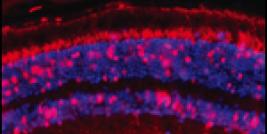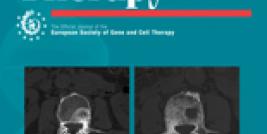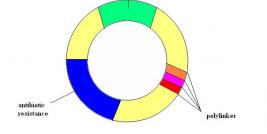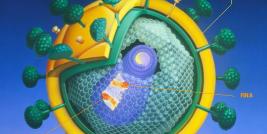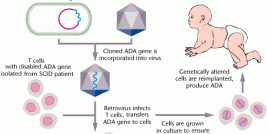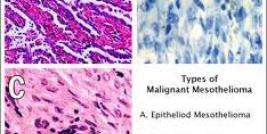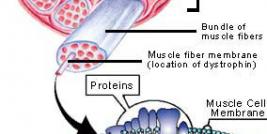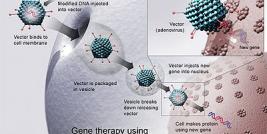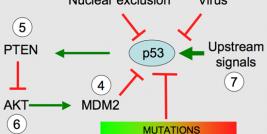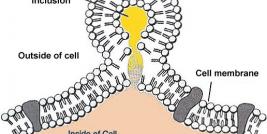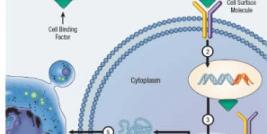Living Cell Technologies Receives Grant from the Juvenile Diabetes Research Foundation International for DIABECELL® NZ Clinical Trial
- US$500,000 towards current New Zealand Phase II Clinical Trial of DIABECELL®
- Support for Phase II Clinical Trial to Test Safety and Efficacy of Cell Replacement Therapy in Type 1 Diabetes Patients
27 April 2010: Sydney, Australia & Auckland, New Zealand. Living Cell Technologies Limited (ASX: LCT; OTCQX: LVCLY), a global company pioneering the development of a cell implant to treat diabetes, has received a grant of US$500,000 for its on-going Phase II clinical trial of DIABECELL® in New Zealand from the Juvenile Diabetes Research Foundation International (JDRF), a world leader in setting the agenda for diabetes research and the largest charitable funder and advocate for research in type 1 diabetes.
The first four patients have already received implants and early observations show clinical benefit without remarkable adverse events to date. The Data Safety Monitoring Board has approved proceeding with implants of a higher dose for the next four patients. The JDRF grant will contribute to the second portion of the Phase II trial, which will test the safety and efficacy of DIABECELL® given in higher amounts in patients with type 1 diabetes.
“The initial results from the first phase of the trial showed us a significant feature of LCT’s product in its ability to protect the cells from immune rejection without the use of immunosuppressive anti-rejection drugs,” said Dr Julia Greenstein, Ph.D., Director of Beta Cell Therapies at JDRF. “Encapsulation for immuno-protection is one of JDRF’s research priorities, and the success of this trial could have an important impact on this field of research and the development of a commercially-viable cell replacement therapy for people with type 1 diabetes.”
Professor Bob Elliott, medical director of LCT, said, “At this early stage, we have seen the abolition of unaware hypoglycaemia in the first patient. This diabetes complication occurs in up to 17 percent of long term type 1 diabetic people, and is responsible for up to 8 percent of all deaths in type 1 diabetes. The grant from the JDRF is most welcome as we share the same concerns for diabetes patients who endure life threatening episodes of low blood glucose without warning symptoms.”
Dr Paul Tan, Chief Executive Officer for LCT, said, “We are delighted that the JDRF, the world’s largest charitable funder and advocate of diabetes science worldwide, is supporting the progress we are making to advance DIABECELL® towards normalising the lives of people with unstable diabetes.”
The collaboration with JDRF and LCT for the Phase II trial of DIABECELL® is part of JDRF’s innovative Industry and Discovery and Development Partnership program. Through the program, JDRF partners with pharmaceutical, biotech, and medical device businesses that seek to develop drugs, treatments, technologies, and other therapeutics leading to a cure, reversal, or prevention of type 1 diabetes and its complications. To date, JDRF has made 27 industry grant awards to support a variety of strategic type 1 diabetes research projects since the IDDP program was established in 2004.
Type 1 diabetes is an autoimmune disease in which a person’s pancreas stops producing insulin, a hormone that enables people to get energy from food. Type 1 diabetes strikes children and adults suddenly, and lasts a lifetime. People with type 1 diabetes must take multiple injections of insulin daily or continuous infusion of insulin through a pump to survive. Intensive insulin treatment to normalize blood glucose and prevent future eye, kidney, nervous system and cardiovascular complications can sometimes result in hypoglycaemic unawareness, a loss of the normal stress response to low blood glucose levels. People with type 1 diabetes and hypoglycaemic unawareness feel no warning symptoms when their blood glucose levels drop to low levels that can impair consciousness and lead to accidents and coma. (www.diabetesnet.com and www.diabetesselfmanagement.com)
DIABECELL® is LCT’s treatment designed to normalise the lives of people with insulin-dependent diabetes. DIABECELL® comprises encapsulated porcine insulin-producing cells (islets) that are implanted into the abdomen of patients using a simple laparoscopic procedure, and work by self-regulating and efficiently secreting insulin in the patient’s body. LCT's breakthrough proprietary encapsulation technology means that patients receiving DIABECELL® treatment do not require immunosuppressant drugs after implantation.
For further information: www.lctglobal.com










